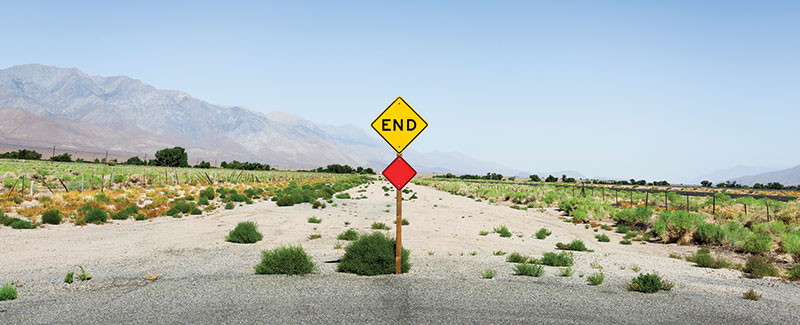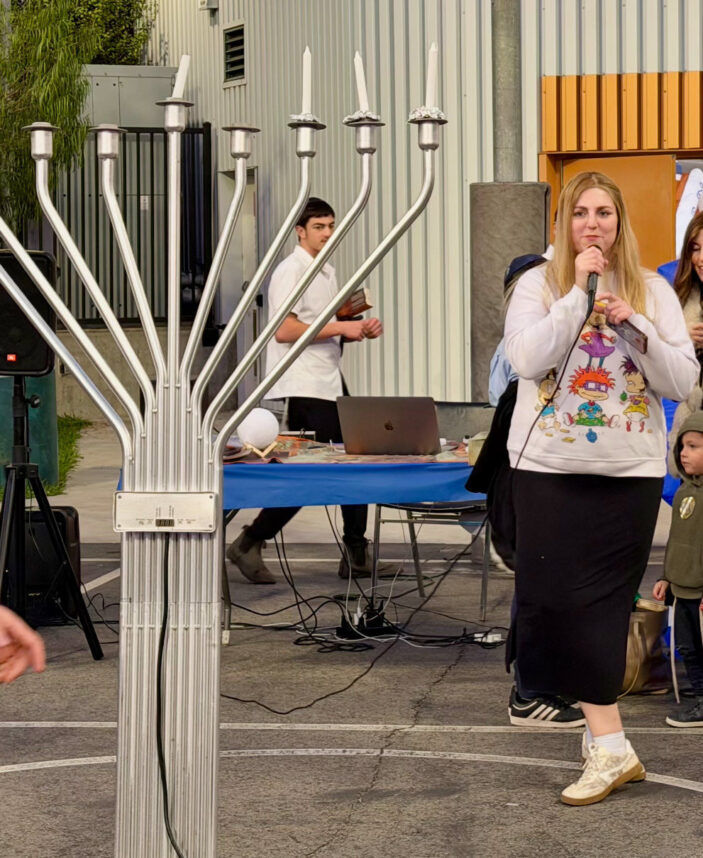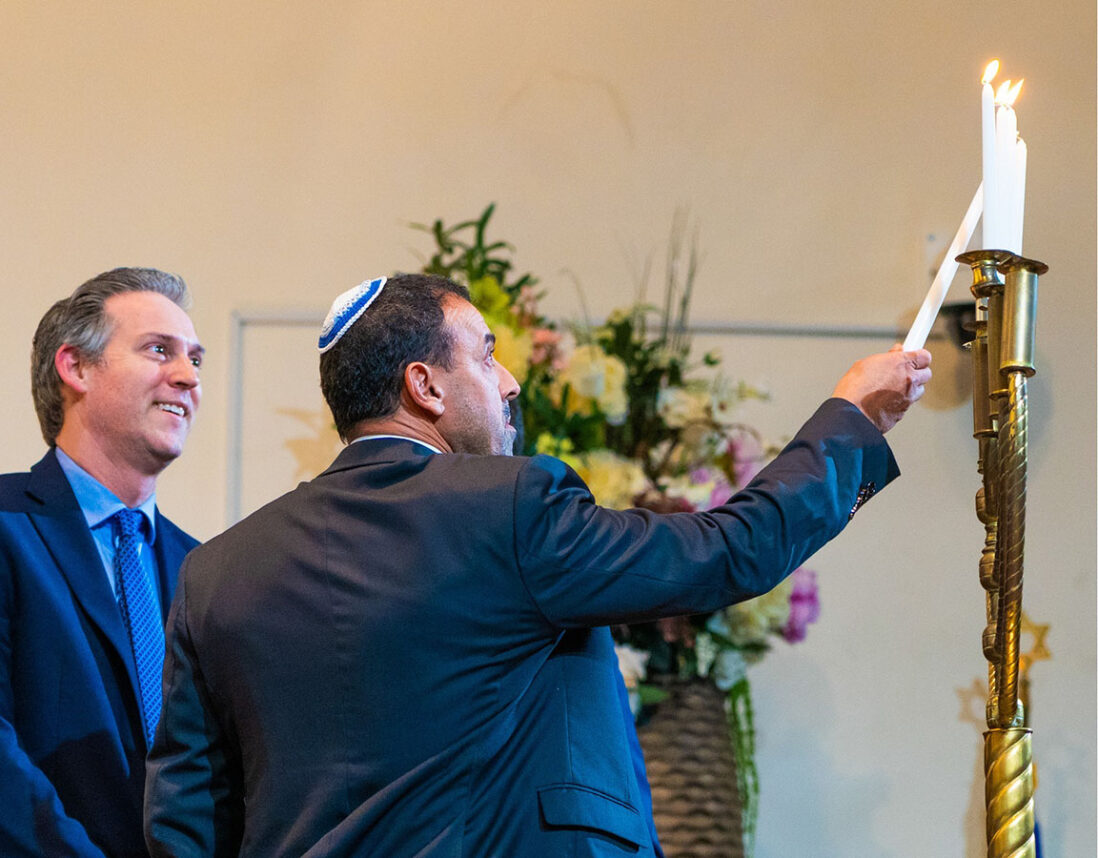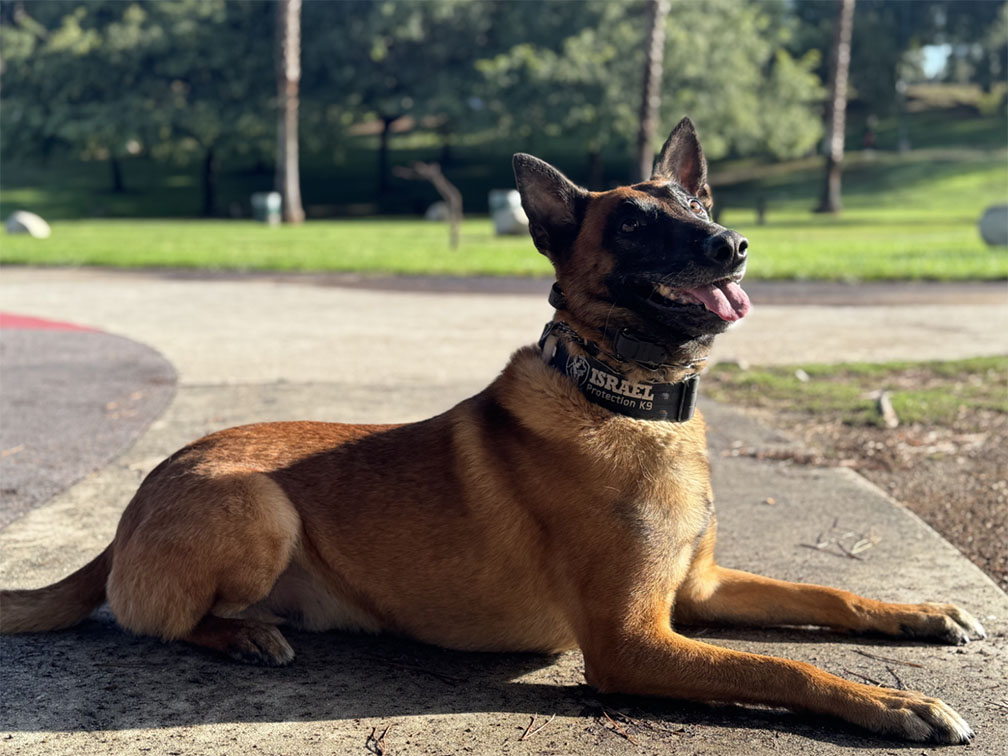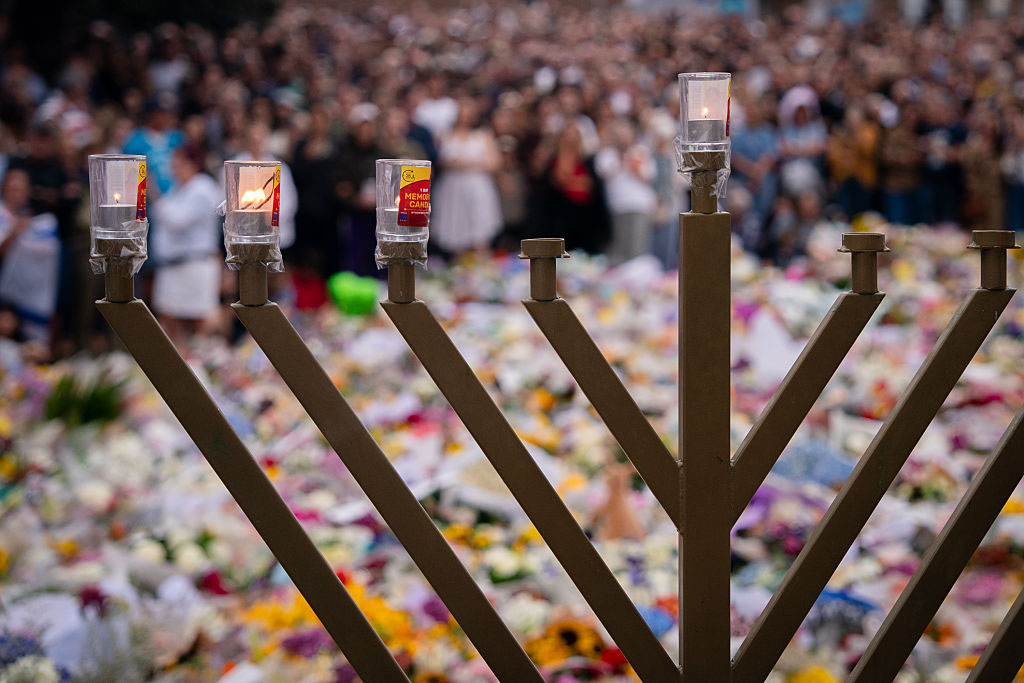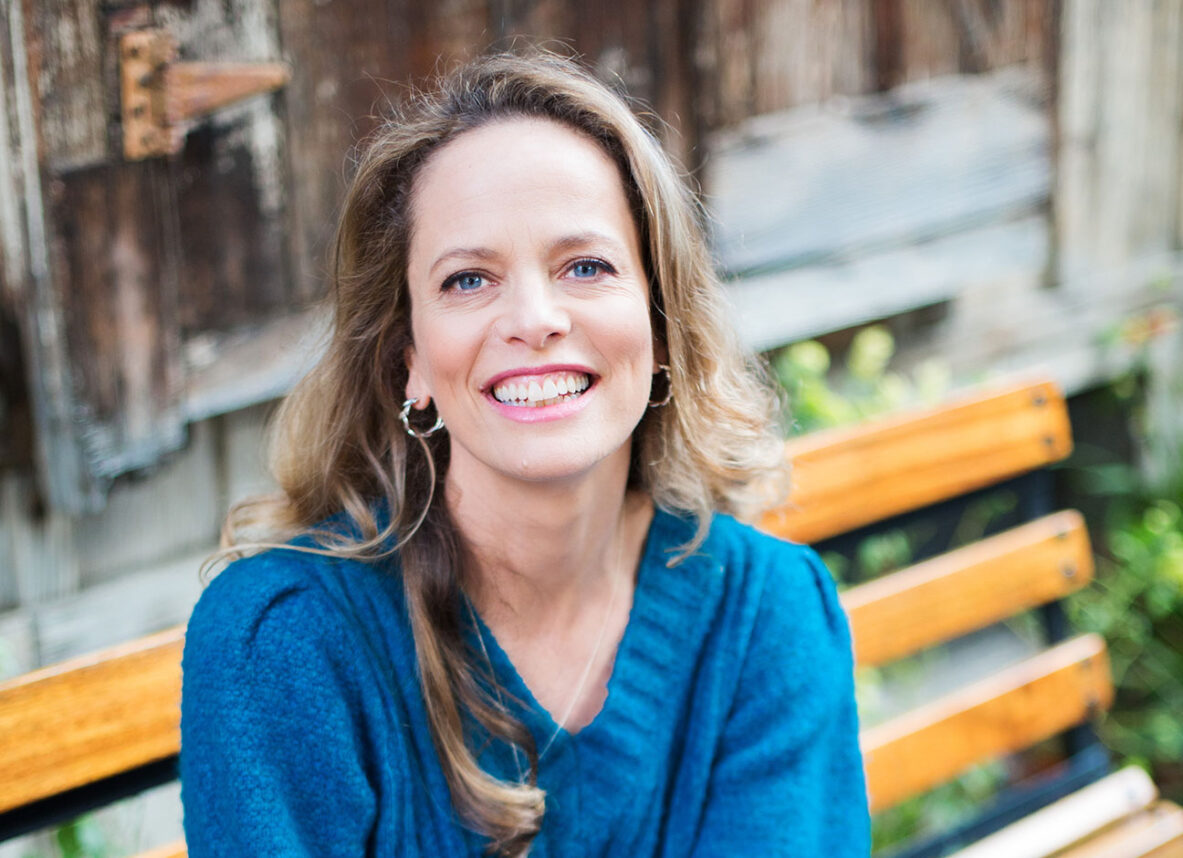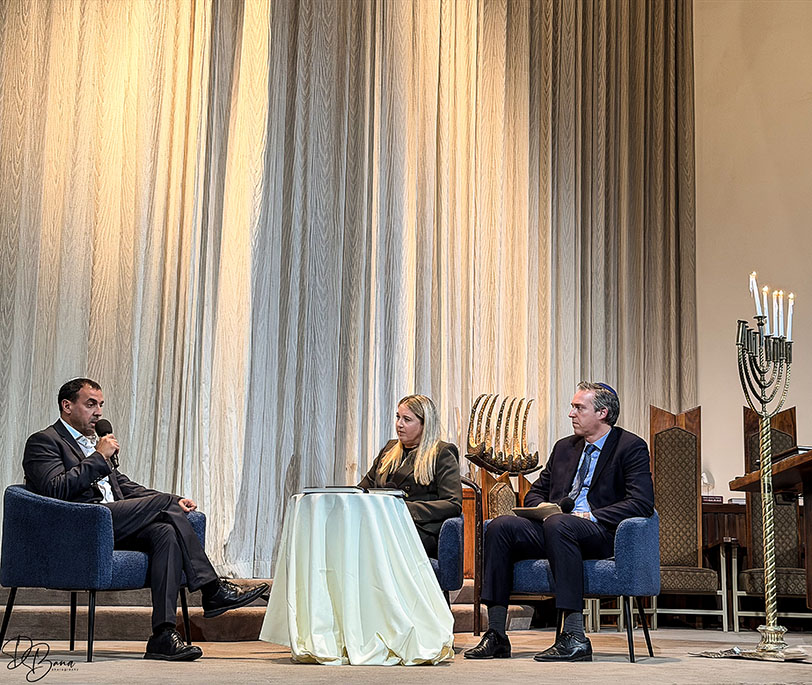One of the more interesting nuggets buried in a long, Hebrew-language interview with New York Times columnist David Brooks in the recent Ha'aretz magazine is the revelation, toward the very end, that Brooks's oldest son serves in the Israel Defense Forces.
“Brook's connection to Israel was always strong,” the article reports. “He has visited Israel almost every year since 1991, and over the past months the connection has grown even stronger, after his oldest son, aged 23, decided to join the Israel Defense Forces as a “lone soldier” [Ed. Note: a soldier with no immediate family in Israel].
“'It's worrying,'” says Brooks, 'But every Israeli parent understands this is what the circumstances require. Beyond that, I think children need to take risks after they leave university, and that they need to do something difficult, that involves going beyond their personal limits. Serving in the IDF embodies all of these elements. I couldn't advise others to do it without acknowledging it's true for my own family.'”
Chatter immediately heated up over this fact, which until now hasn't cropped up in any Google searches. Many commenters praised Brooks' for his son's service. Others maintained that he and the New York Times have the duty to reveal the fact that his son is serving in the IDF as it personally colors his commentary on Israel and Middle East issues.
Between 800-1000 Jews from abroad serve in the IDF, according to an IDF spokesperson. It is not illegal for an American citizen to join a foreign army– unless that army is at war with America. Nor does joining a foreign army require one to relinquish citizenship. Americans serve in other foreign armies, such as the French Foreign Legion. American volunteers have been integral to the founding and success of the IDF from the birth of Israel in 1948. Then, decorated Marine Corp. pilot Lou Lenart took to the air to stop Egyptian troops advancing on Tel Aviv.
In the last Gaza War, two American-born IDF soldiers were among the first casualties. The widely reported deaths of Max Steinberg, a native of Woodland Hills, CA, and Sean Carmeli of Dallas spurred a great deal of coverage, and for many people was the first they'd heard of young Americans serving in Israel.
There's anecdotal evidence that more and more young American Jews are joining the IDF, Brooks' son, who he doesn't name, being just one. But do Brooks and his editors have a duty to reveal this fact– I mean, in English?
In 2010 the web site electronicintifada.com reported that the New York Times senior correspondent in Israel, Ethan Bronner, had a son serving in the IDF. The revelation sparked a storm of criticism, and elicited a detailed response from Clark Hoyt, the newspaper's ombudsman.
In its long ethical code, the Times is vague on what exactly constitutes a conflict of interest.
“In this case,” Hoyt writes, ” the guidelines stop far short of dictating what should be done. They say that if a family member’s activities create even the appearance of a conflict of interest, it should be disclosed to editors, who must then decide whether the staffer should avoid certain stories or even be reassigned to a different beat.” After speaking with journalism professors and former correspondents, Hoyt ultimately came down against Bronner's continued posting.
“I have enormous respect for Bronner and his work,” he wrote,” and he has done nothing wrong. But this is not about punishment; it is simply a difficult reality. I would find a plum assignment for him somewhere else, at least for the duration of his son’s service in the I.D.F.” The Times brought Bronner back to the States at the conclusion of his stint. He is now deputy national editor.
But Bronner was a reporter, tasked with provided fair and accurate coverage of all sides of the frought conflict. Brooks is a columnist– he's supposed to take sides, and supposed to make his opinions known. Columnists regularly dragoon their personal experiences in service to their writing– many write directly out of their family lives. At some point, Brooks will take on what it means for him to have a son in the IDF. Perhaps letting it slip out, in Hebrew, was his way to begin to think about what that means.
Will it change or inform his opinion of the Middle East conflict? Of course, as it should. But it's not a given the experience will make Brooks more or less pro-Zionist. Talking to Israeli soldiers is an education in the good, the bad and the ugly. (See this story by our reporter Simone Wilson as Exhibit A).Through his son, Brooks will be able to get closer to the reality of the conflict, for good or ill, than most other pundits. How is that a bad thing?
Here is the original Hebrew text from Haaretz:
הקשר של ברוקס לישראל תמיד היה חזק – הוא מגיע לארץ כמעט מדי שנה מאז 1991 – ואולם בחודשים האחרונים הקשר התחזק אפילו יותר, לאחר שבנו הבכור, בן 23, החליט להתגייס לצה”ל כחייל בודד. “זה מדאיג”, הוא אומר, “אך כל הורה ישראלי מבין שזה מה שהנסיבות מחייבות. וחוץ מזה, אני חושב שילדים צריכים לקחת סיכונים כשהם יוצאים מהאוניברסיטה, ושהם צריכים לעשות משהו קשה, שכרוך גם בלפרוץ את גבולות 'העצמי'. שירות בצה”ל מגלם את כל המרכיבים האלו. אני לא יכול לייעץ לאחרים לעשות זאת, מבלי שהדבר יהיה נכון גם למשפחה שלי”










